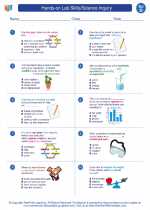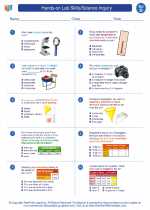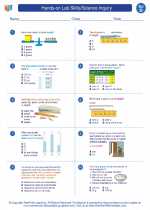Nitrification
Nitrification is a crucial process in the nitrogen cycle, where ammonia is converted into nitrites and then nitrates by the action of nitrifying bacteria. This process plays a vital role in making nitrogen available to plants for their growth and development.
Key Concepts to Understand Nitrification:
- Nitrogen Cycle: Nitrification is a part of the nitrogen cycle, which involves the movement and transformation of nitrogen in various forms through the environment.
- Role of Nitrifying Bacteria: Nitrification is carried out by specific groups of bacteria, including Nitrosomonas and Nitrobacter, which oxidize ammonia to nitrites and then nitrates.
- Importance in Agriculture: Nitrification is essential for the conversion of ammonia-based fertilizers into forms that can be readily absorbed by plants, thereby promoting their growth.
Study Guide for Nitrification:
1. What is nitrification?
Nitrification is the biological process through which ammonia is converted into nitrites and then nitrates by nitrifying bacteria in the soil.
2. What are the key players in nitrification?
The key bacteria involved in nitrification are Nitrosomonas, which convert ammonia to nitrites, and Nitrobacter, which further oxidize nitrites into nitrates.
3. Why is nitrification important for plant growth?
Nitrification converts ammonia, which is less accessible to plants, into nitrate, a form of nitrogen that plants can readily absorb and utilize for their growth and development.
4. How does nitrification impact agricultural practices?
Nitrification is essential for the efficient utilization of ammonia-based fertilizers in agriculture, as it converts the applied ammonia into nitrate, making it available to crops for uptake.
5. What are the environmental implications of nitrification?
Nitrification can lead to the leaching of nitrates into water bodies, potentially contributing to water pollution. It also plays a role in the global nitrogen cycle and its impact on ecosystems.
Understanding the process of nitrification is fundamental to grasping the flow of nitrogen in the environment and its significance in sustaining plant life. By studying nitrification, we gain insights into the intricate relationships between microorganisms, plants, and the environment.
.◂Science Worksheets and Study Guides Fourth Grade. Hands-on Lab Skills/Science Inquiry

 Worksheet/Answer key
Worksheet/Answer key
 Worksheet/Answer key
Worksheet/Answer key
 Worksheet/Answer key
Worksheet/Answer key
